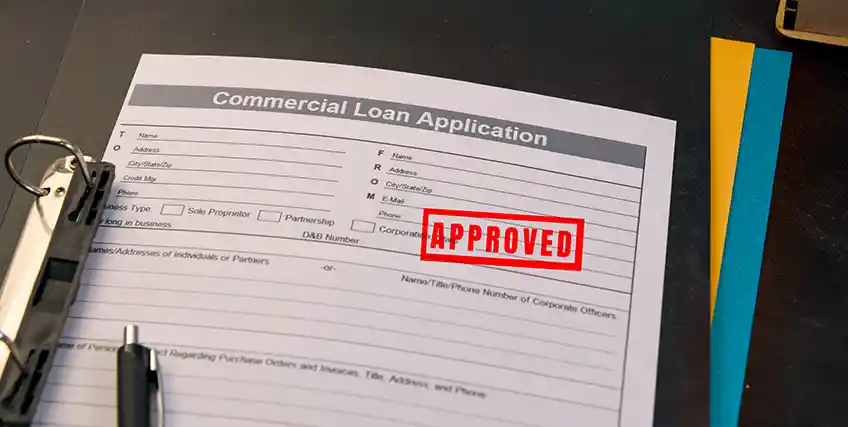Looking for Business Financing?
Apply now for flexible business financing. Biz2Credit offers term loans, revenue-based financing, lines of credit, and commercial real estate loans to qualified businesses.
Set up a Biz2Credit account and apply for business financing.
Getting the right equipment or company vehicles can make or break a small business. Yet for many owners, traditional bank financing is slow, outdated, and full of red tape. Modern entrepreneurs prefer alternative lending solutions over lengthy wait times, strict credit requirements, and extensive paperwork.
Alternative lending companies provide quicker, more flexible, and personalized financing options. This means you can get what you need without disrupting your business operations or cash flow. This article looks at alternative lending companies and how alternative loans work better to meet your business needs.
What is alternative lending?
According to Research and Markets, the alternative business lending market is expected to grow from $284.5 billion in 2024 to $378.6 billion in 2028. More and more small business owners are avoiding traditional loans and are turning to alternative lending companies, which provide nonbank financial solutions through fintech companies, online lending platforms, and specialized business lenders.
Alternative lending companies are usually found online and provide many of the same types of business financing as traditional lenders, including lines of credit and equipment financing. But they work differently.
Traditional lenders depend largely on credit scores. On the other hand, online alternative lending companies make use of technology and data to assess a borrower's business performance and their creditworthiness. This modern approach works better for startups, small businesses, and those with bad credit or a limited operating history.
Common Alternative Lending and Financing Options
Alternative financing covers a range of funding options, including but not limited to:
Equipment Financing
An equipment loan from alternative lending companies can be used to purchase new or used business equipment in just about any industry, from medical and construction to retail and hospitality.
Restaurant equipment such as industrial coolers, refrigeration systems, stoves, ovens, tables and chairs, delivery vans, and POS systems.
Construction and contractor equipment, including heavy machinery, excavators, forklifts, bulldozers, power tools, safety gear, and more.
Medical equipment such as medical devices, imaging equipment, office furniture, computer systems, exam tables, and more.
Office equipment, including furniture, hardware, computer devices, printers, software licenses, and more.
Hotel and hospitality equipment, including beds, furniture, recreational buildouts, kitchen equipment, and more.
Delivery service equipment, such as vehicles, uniforms, safety equipment, and more.
Retail equipment, including displays, POS systems, mirrors, lighting, etc.
Industrial equipment, such as machines, manufacturing lines, robotics, and more.
It's relatively simpler to obtain an equipment loan because the items purchased with the loan funds serve as collateral. That said, you'll typically get the best rates and terms if your credit score is above-average or higher.
Typically, the repayment period of equipment financing is limited to the useful life of the equipment. For instance, if the equipment use is expected to last five years in the business, the loan repayment period will typically not extend beyond that.
Business Lines of Credit
A business line of credit operates like a credit card. With a line of credit, your business borrows against a predetermined, set credit limit and repays what it has borrowed with interest. Then, it can borrow again on funds that are repaid. With business lines of credit, interest accumulates only on the amount of the credit line drawn.
This type of flexible financing is great for purchasing equipment or inventory, covering emergency expenses, or boosting cash flow during seasonal demands.
Term Loans
Term loans are usually used for major business expenses, such as an expansion or major business purchases, such as company vehicles, a second location, or commercial real estate purchases.
A term loan usually provides an upfront lump sum loan amount with a predictable, fixed repayment schedule in equal monthly installments with interest added to the payments.
Alternative lenders offer both short-term and long-term loans. Short-term loans have to be repaid much more quickly, usually over a few months, while long-term loans can extend out for several years, depending on the lender, what the funds are used for, and your creditworthiness.
SBA Loans
While SBA loans have historically been issued by banks, in recent years, some alternative lending companies have become approved SBA lenders.
As long as you meet SBA underwriting requirements, an SBA loan will typically offer lower interest rates and better repayment terms than other types of small business loans.
While many alternative lenders will work with applicants who have only personal credit, the SBA is more likely to require that lenders ensure applicants meet its business credit score requirement.
Merchant Cash Advances (MCAs)
A merchant cash advance is a type of flexible funding offered almost exclusively by alternative lenders. Repayments on a merchant cash advance are based on a percentage of future sales in your business. MCAs are fairly easy to qualify for, with low credit score requirements with some alternative lending companies. But the primary disadvantage is that you'll likely pay a higher interest rate. Merchant cash advances are used by businesses that need quick funding to boost cash flow during seasonal downturns.
Invoice Factoring
Invoice factoring is not a type of small business loan, but a type of funding where you can exchange your unpaid invoices or accounts receivables for a cash advance. This is usually done with a third-party factoring company. The downside of invoice factoring is that you'll only receive a percentage of the value of the outstanding invoices.
But the cash received from invoice factoring can help boost your business's cash flow and meet operating expenses. If you have a high-dollar value of unpaid invoices, you can meet more significant business needs, such as a business expansion or purchasing equipment. Invoice factoring is a good option for small business owners with bad credit.
Why Small Businesses Turn to Alternative Lenders
Time is money when you're running a business. Traditional bank loans sometimes take weeks or even months for underwriting and approval. Alternative lending companies, meanwhile, can often deliver quick funding within days. Here's why many small business owners are choosing alternative lenders over traditional banks:
Flexible Eligibility and Credit Requirements
Traditional lenders typically require a high credit score and several years in business. Alternative lending companies evaluate your business's overall financial health. They'll look at your company's cash flow, receivables, and revenue trends, instead of just credit alone.
This newer way of determining eligibility allows businesses with a limited history or bad credit to qualify for business financing.
Quicker Funding Decisions
Alternative lenders use technology and data to simplify the application process. They utilize loan origination software to connect to third-party providers to verify essential metrics, such as your monthly revenue, spending habits, transactions, and more.
Personalized Repayment Terms
Every business operates differently and has unique needs. Alternative lenders understand this and create repayment terms suited to your business needs. Alternative loan platforms have repayment plans that can vary from daily to weekly or monthly, based on your sales cycle.
Preservation of Working Capital
Businesses that are able to secure financing for large purchases like vehicles or equipment can better preserve working capital for day-to-day operational expenses, such as payroll, rent, and inventory.
Less Paperwork and More Transparency
Alternative lending companies process loans differently from banks and traditional lenders. Loan applications can be filled out online and require less documentation processing. Moreover, you can track your loan status in real time, so that you know where you stand every step of the way. In short, alternative business lending removes the administrative burden that is so common in traditional lending and is responsible for slower funding.
How Equipment & Vehicle Financing Works
Equipment and vehicle financing through alternative lending companies is straightforward. Instead of paying the full cost upfront, your business borrows the funds (or leases the asset) and pays it off over time.
Assess Your Needs
Choose an Alternative Lending Company
Gather Key Documents
Submit a Loan Application
Prepare for a Quick Decision
Receive the Funds
Repay On Time
Determine what kind of equipment or vehicles your business needs so you have an idea of how much you need to borrow. Make a list of what you'll want to purchase once you receive funds from your alternative lending company.
Compare your funding options and interest rates from top reputable alternative lending companies. Learn about their eligibility criteria to ensure you can provide what's required. Ask about any extra fees that can add to the overall cost of the funding solution you're considering. Learn about their collateral, down payment, or time in business requirements.
Each lender will have different requirements from another regarding documentation. At a minimum, you may need your business license, recent financial statements, cash flow or profit and loss statements, and tax returns. A business plan can also boost your application and case for funding.
Have everything required ready before applying. When filling out the application, ensure that all required fields have been entered into the system. Anything missed can result in delays in your application getting processed or your business receiving the funding it needs.
Once you've applied for your vehicle or equipment financing, be prepared to move quickly.
Be available for any additional documentation required or questions your provider might have. You should be ready to close and sign off on your financing solution fairly quickly.
If your application is approved, alternative lending companies often disburse funds quickly.
Then you can purchase your business's new equipment or vehicles immediately to meet any business goals you've set.
It's very important that once you've received funding, to make regular, consistent, timely payments until the loan is paid off. This will build your business credit if the lender reports to the credit bureaus and help you qualify for better business loan terms down the road.
Also, once your equipment or vehicle financing is paid off, the items purchased with the loan become business assets that you can trade or sell when the time comes.
Final Thoughts
Financing through an alternative lending company can unlock new levels of growth for your business. Alternative lending companies have transformed how entrepreneurs get the equipment and vehicle funding they need.
Alternative financing offers fast funding, flexible repayment terms, and tailored solutions to fit a multitude of business needs. Instead of waiting weeks for approval and funding from traditional banks, you can get a decision quickly and keep your operations running smoothly.
Whether you're a startup purchasing your first company truck or an established company upgrading its fleet or equipment, alternative lenders provide the agility you need to compete and thrive.
FAQs About Alternative Lending Companies
1. What can alternative lending companies offer small businesses?
The two overriding advantages of alternative business loans are a seamless application process and quick funding decisions. Traditional banks may rely on paper applications and require you to visit a branch. Meanwhile, alternative lenders let you complete the entire application process online.
2. How would a traditional lender and an alternative lending company handle an equipment loan differently?
Chances are a traditional lender, like a bank, will require a personal guarantee, larger down payment, or additional security before approving an equipment loan. With an alternative lender, sometimes the equipment is collateral enough, and although you may need a down payment, the lender likely won't require as much of one as a bank would.
3. Do alternative lenders for small businesses have options if I have bad credit?
Some alternative lending companies have flexible financing solutions for business owners with bad credit.
4. How quickly can I get funded in alternative business lending?
Some providers have had cash in hand to small business owners quickly. Each case is different, but it rarely takes time for funds to be disbursed through a reputable alternative lender.
5. How to find the top alternative lending companies?
A company that has a proven track record of providing financing to small businesses is vital. Check online reviews on third party platforms like TrustPilot, look for customer testimonials, and then reach out to your top choices and ask them questions about your situation. The customer service experience will also tell you a lot.




